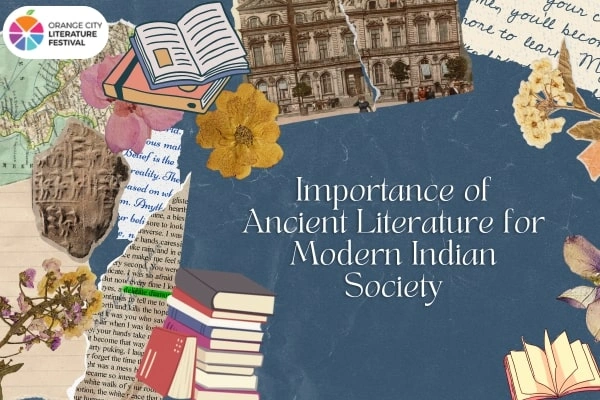- 28th Aug 2024
"Ancient Indian Literature" is a profoundly balanced word as many refer to it as mythology, and some may call it history. Still, one thing for sure is that it inevitably impacts Indian society. Ancient literature commentary provides explanations, interpretations, and insights into classic texts from the past, such as Ramayana and Mahabharat. Every human being has their perception of a story. Ramayana and Mahabharat are highly commented on ancient literature in the world.
Devdutt Pattanaik's "Sita: An Illustrated Retelling of Ramayana'', Amish Tripathi's "Scion of Ikshvaku'', and Ashok Banker's "Vengeance of Ravana'' are some prominent examples of ancient literature commentary.
Let's discover why these old texts hold such immense value in the Indian context.

Understanding Ancient Literature and Its Commentary
Ancient texts are not only meant for reading. Rather, it has shaped Indian societies. Hindu lifestyle is dictated by old Indian text. Religious rituals, way of life, social norms, and moral lessons to lead a Hindu life are all derived from these texts. Modern commentary on the old text is "Perspective Retelling" of the story. While attending Orange City Literature Event, Piyusha Vir, author of “Dashavatar: Stories of Lord Vishnu”, said, "Since childhood, Mahabharat has had an old fascination for me. One of my friends after attending the Tata Literature Festival recommended the book "Sita's Sister" authored by Kavita Kane, written from the perspective of Urmila, Sita's sister. Then, I realised the same story can be told from a different perspective, and it becomes new. These epics are so complex and detailed that we can write a whole book on a single character." Commentary on these texts involves scholars and experts providing detailed analysis, contextual references, and clarifications to help readers navigate the complexities of these ancient works.
Deep Cultural and Historical Roots of Appeal
It impacts an allure of ancient literature commentary in India through this depth of cultural and historical rooting. Even within India, Indians have been bred in a tradition that reveres knowledge, wisdom, and learning; hence, they appreciate ancient texts and commentaries. These are not just considered books but repositories of spiritual insight, ethical teaching, and intellectual contemplation based on timeless, invaluable guiding wisdom for the readership of generations.
Ancient texts and their commentaries are integral to India's education and scholarship system. They already form the backbone of traditional learning systems in this country. These include Gurukul education and Sanskrit studies, wherein the students undergo minute analysis and discussion on these texts under the guidance of learned scholars. Moreover, academia and research institutions use ancient literature commentary to gain a wide-ranging and deep understanding of Indian history, culture, and philosophy. There, commentaries again became essential tools for every academic purpose. Many authors regularly discuss this subject at various lit fests such as Gujarati Literature Festival, Kerala Literature Festival and many others.
Enduring Popularity and Significance
The commentaries on ancient literature in India are timeless and universal. The insights and lessons in these texts go beyond time and culture to equip the reader with truths and reflections on the human factor. Further, the elaborate critical analysis and interpretations in their commentaries help provide access and relevance to old texts for readers. Many authors have discussed this subject at National and International Literary Festivals.
In conclusion, Indian hearts and minds value commentary by ancient literature—one with much value based on culture, history, and time-tested wisdom. The reader approaches the text through commentaries representing their ancestors' intellectual and spiritual heritage. Each time we turn a page deeper into the world of ancient commentary literature, we travel on an enlightening journey to become better apprised about our being, and, in the course, we get enriched in a manner that certainly transcends both time and space.